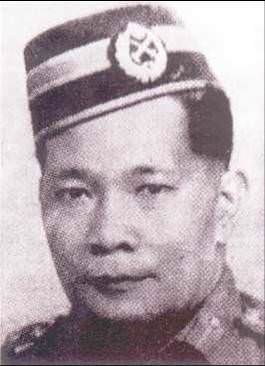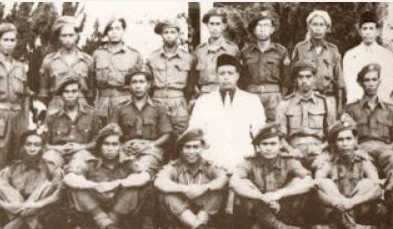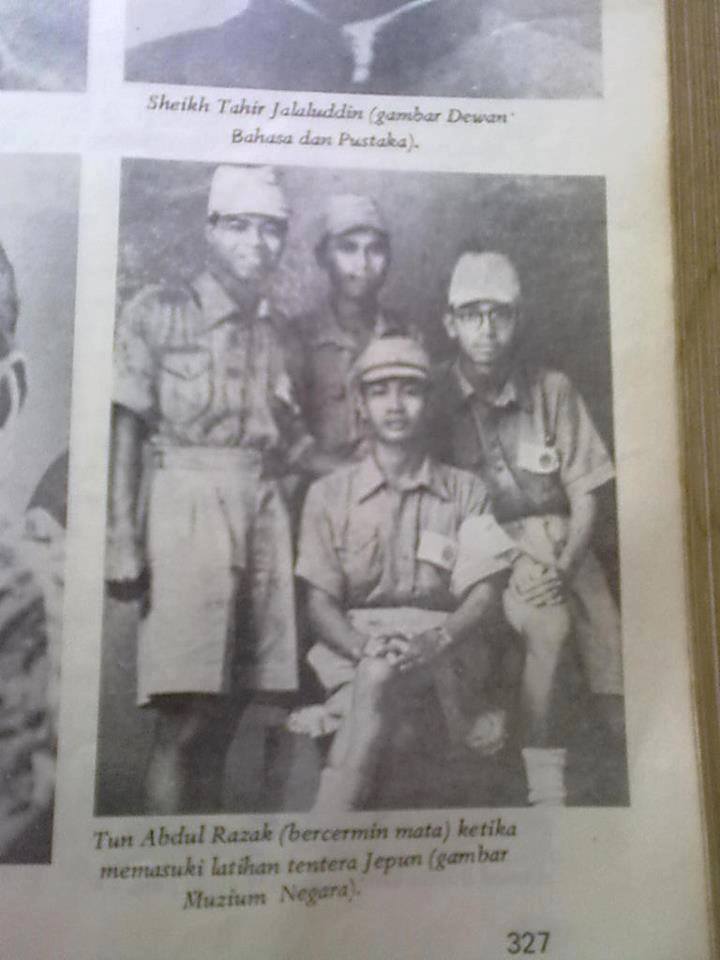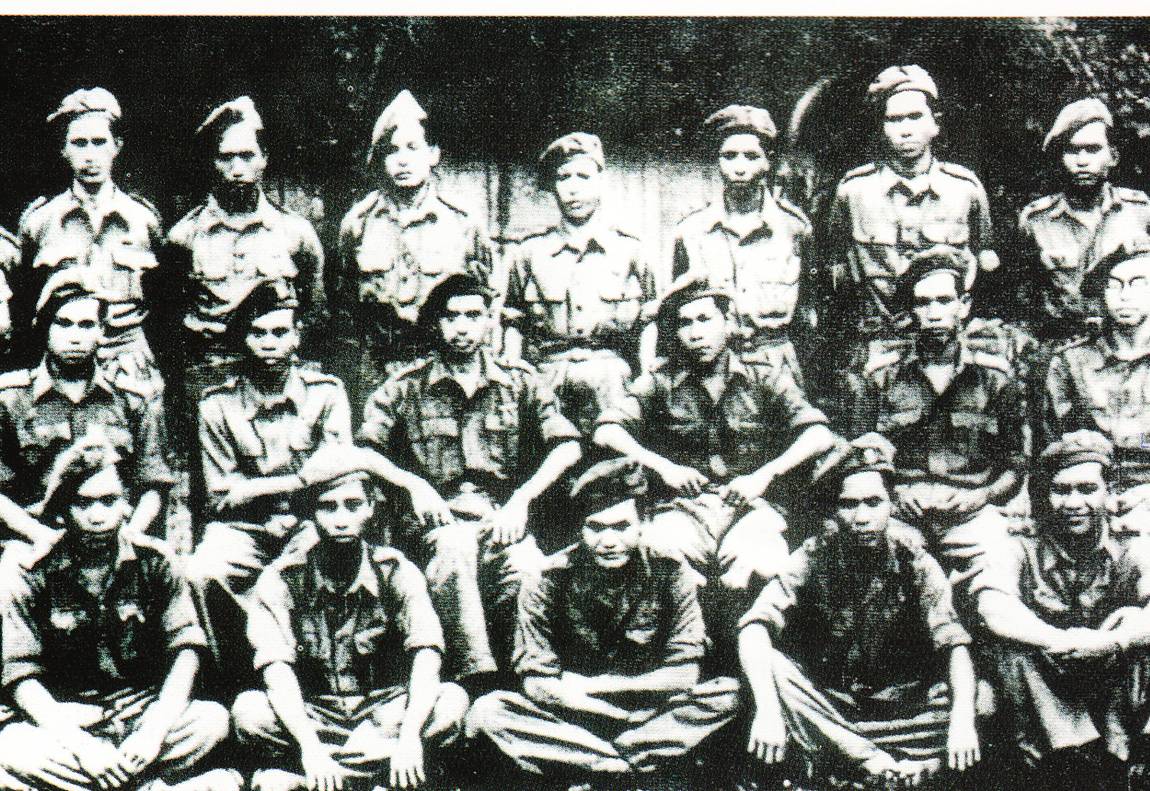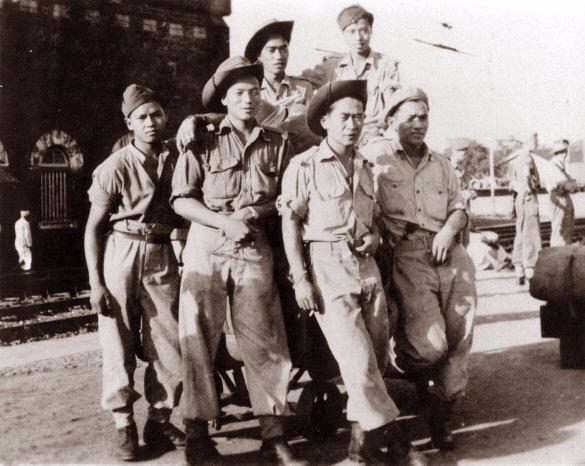A Boxer & A Patriotic Leader: Meet The Man Who Convinced Our Former PM To Become A Spy
The former boxer, Colonel Dato' Yeop Mahidin, was also a Senior Secretary of the Ministry of Social Welfare.
Charismatic, intelligent, and patriotic are just some adjectives used to describe Colonel Dato' Yeop Mahidin Mohamed Shariff, who founded a guerrilla force to take down the Japanese army.
But not many might know that this hero was also a boxing champion!
According to this blog post, Yeop was born on 20 February 1918 in Kampung Lambor Kiri in Parit, Perak.
Being the son of a customs officer, education was heavily emphasised in Yeop's household. He received his early education at Lambor Kiri and later at Anderson School, Ipoh from 1928 to 1937.
During this period, he was very active in sports; he used to be the champion in the Silver Amateur Boxing event under the 'Bantam Weight' category.
Yeop had also represented Perak in football, hockey, and cricket — becoming the best cricket batsman, receiving the title of 'Batsman of the year'.
Being patriotic from an early age, Yeop had ambitions to enter the Royal Malay Regiment (RAMD) but was prevented by his headmaster, LD Whitfield, who advised him to take up a civil servant job as a senior government official
Heeding his headmaster's advice, Yeop enrolled at the Malay College Kuala Kangsar (MCKK) in Perak on 7 August 1937. During his time there, he was taught and trained of the duties of a senior government official.
After graduating, he was appointed as a magistrate in Telok Anson (now Teluk Intan), Perak in 1938. A year later, he became a magistrate in Kajang, Selangor.
In 1940, Yeop moved to Kuala Lipis, Pahang to work as an Assistant District Officer (ADO). While in Kuala Lipis, he became a member of the Local Volunteer Force and was subsequently commissioned as a Junior Lieutenant in the force.
Sultan of Pahang with the men of Force 136. Colonel Dato' Yeop Mahidin (middle row, second from left) and Tun Abdul Razak (third row, third from right).
Image via Perdana Leadership Foundation (Facebook)While working as a civil servant, World War II (WWII) broke out, and Yeop seized this opportunity to pursue his ambition of becoming a soldier
Yeop decided to form an anti-Japanese army group known as the Pahang Territorial Guerrilla force, also referred to as Pahang Wataniah.
But before that, in 1942, he went to see the Sultan of Pahang first to ask for his blessings to establish the jungle training camp.
According to the book Southeast Asia: A Historical Encyclopedia, from Angkor Wat to East Timor, the Pahang Wataniah was initially made up of 250 people, including former members of the Local Volunteer Force.
This blog post states that in 1944, Force 136 (a British organisation) joined hands with Pahang Wataniah to take down the Japanese army, under the leadership of Colonel Yeop, Captain Abdul Razak (Tun Abdul Razak, future Prime Minister), and Lieutenant Ghazali Shafie (Dato' Seri Muhammad Ghazali Shafie, future politician).
However, Yeop's identity as founder of the Pahang Wataniah was not known by his men as he operated via proxy.
One of their biggest successes was when 26 of them ambushed the Japanese army, where they killed 30 to 40 Japanese soldiers and destroyed 41 of their vehicles.
This success was the result of Yeop's planning and selection of the ambush site. By then, he had earned the moniker 'Singa Melayu' (Malay Lion) for his bravery and fierceness.
Yeop convinced the future Prime Minister, Abdul Razak, to become a spy for the Pahang Wataniah and obtain critical information for the force
Tun Abdul Razak (in spectacles) when he was working undercover by joining the Japanese military training.
Image via The Malaysian PatriotThis blog post recounts the story of how our former Prime Minister became a spy for the Pahang Wataniah.
Yeop, who was a magistrate at that time, met young Abdul Razak when he just returned to Pahang from studying at Stamford Raffles College, Singapore.
Seeing Abdul Razak's enthusiasm to serve his country, Yeop decided to take him under his wing and instructed the former to join the Malayan Civil Service as a spy for the Pahang Wataniah.
His flawless cover led to the Japanese administration appointing him as an ADO, who had to coordinate a lot of activities with the Japanese Imperial forces — he even made friends with several of them.
However, when the Pahang Wataniah's resistance activities were taken up a notch, the Japanese army began to suspect the people in the Malayan Civil Service as they were the ones who handled details of the Japanese Occupation movement.
The men of Pahang Wataniah in Kuala Lipis on 1 December 1945. Colonel Dato' Yeop Mahidin (middle row, third from right) and Tun Abdul Razak (middle row, far right).
Image via The Malaysian PatriotCoincidentally, one of Yeop's Japanese friends was killed during the massive Pahang Wataniah ambush. Not wanting Yeop to be arrested for treachery (he did not know that Yeop was the head of the force), he warned Yeop to be careful of Abdul Razak.
This was when Yeop knew that the Japanese were suspicious of Abdul Razak's cover. He quickly set out a plan to 'kidnap' Abdul Razak and have him 'executed' for being a Pahang Wataniah traitor.
The kidnapping plot worked because the Pahang Wataniah had no idea that Abdul Razak was their spy and that they were actually rescuing him!
Everyone only knew of Abdul Razak's sacrifice when he exited the force.
At the same time, the 'Father of Wataniah' quickly climbed the ranks of the Local Volunteer Force and became a commander, holding the rank of Major, in 1945
Around this time, Whitefield offered Yeop to be enrolled in a military course in London, but he rejected the offer. Instead, Yeop sent his subordinates, namely Abdul Razak and Ghazali Shafie.
After WWII ended, Yeop was entrusted to destroy the communist forces that were rising during the Malayan Emergency.
So, in 1950, Yeop was appointed as the Deputy Director of the 'Home Guard', which was formed to assist the security forces in dealing with the communist threat.
However, after the emergency ended eight years later, the Home Guard disbanded and Yeop was instead appointed as Chief Food Denial Officer in Perak. His main responsibility was to ensure that the sympathisers did not provide the communists with food.
When the Territorial Army Regiment (AW) was established to replace the Home Guard, Yeop was appointed as its first Director with the rank of Colonel.
In addition, he was also the Chairman of Boxing and Football of the Malaysian Armed Forces (MAF) at the time.
Yeop finally left the military in November 1963 and used his education background instead to become the Kuala Lipis District Officer
Yet, he continued to serve the society by being appointed as Senior Secretary of the Ministry of Social Welfare in 1965 and two years later, as FELDA's Director of Settler Affairs.
Coming from a family of silat practitioners who served as protectors of the Perak Sultanate, Yeop also became a well-known silat instructor and champion.
New Straits Times reported that Yeop was also active in the Malaysian Olympic Movement, taking on the role of chef de mission of the Malaysian contingent during the 1971 South East Asian Peninsular Games (SEA Games) in Kuala Lumpur.
Sadly, the 'Father of Wataniah' passed away of old age in 1999. But his patriotic spirit still lives on through the AW!
